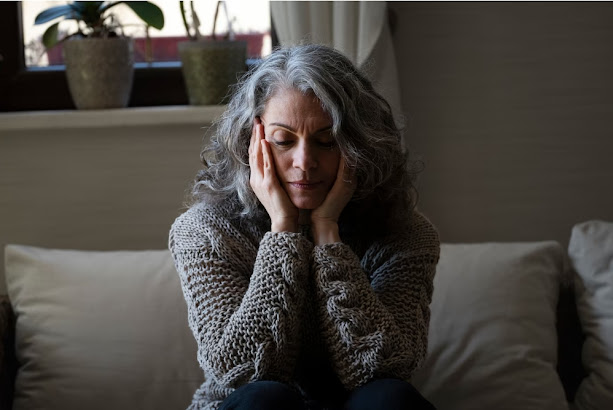Why Does Dementia Worsen at Night?
The short answer is dementia causes an upset to your loved one’s internal body clock, causing a biological mix-up between day and night. This causes further confusion and agitation for your loved one with dementia, as they may not understand why it’s dark outside when they believe it is the middle of the afternoon. This phenomenon, known as sundowning, can be just as distressing and challenging for caregivers if they are not equipped to navigate this issue. In this article, our memory care team in Morris County takes a closer look at why dementia worsens at night and what caregivers can do to help.
While the exact causes of sundowning are not fully understood, researchers believe that a combination of factors contribute to it. One consideration is the disruption of the body’s circadian rhythm. Our bodies have a natural clock that regulates our sleep-wake cycle, and this rhythm can be disrupted in individuals with a memory loss condition. As a result, they may experience increased confusion and agitation during the evening and nighttime hours.
Another element is a decrease in the levels of natural light. Exposure to natural light during the day is essential for synchronizing the body’s circadian rhythm and promoting a healthy sleep-wake cycle. However, seniors with dementia may typically spend more time indoors and have limited exposure to natural light. This lack of exposure can disrupt their body clock, leading to increased confusion and restlessness at night.
Fatigue and exhaustion can also play a significant role in sundowning. Older adults with dementia may experience fatigue more during the day due to disrupted sleep patterns or the demands of daily activities. This daytime fatigue ultimately can lead to increased confusion and restlessness in the evening and at night.
Fortunately, there are ways that memory caregivers can help seniors with dementia who experience sundowning. Here are some strategies that may be effective:
- Establish a daily routine. Creating a consistent routine can help older adults with dementia feel more secure and less anxious. Having a set schedule for meals, activities, and bedtime can help regulate their sleep-wake cycle and reduce the likelihood of sundowning.
- Let there be light! Exposure to natural light can help balance the body’s circadian rhythm and nurture a healthier sleep-wake cycle. Caregivers in a memory care facility, like Lester Senior Living, will encourage residents to spend more time outdoors during the day by taking part in fun activities like a daily nature walk or outdoor yoga class.
- Minimize stimulant intake. Stimulants such as caffeine and nicotine can disrupt sleep patterns and exacerbate sundowning symptoms. Caregivers should limit or prevent their loved one’s intake of these substances, especially in the afternoon and at night.
- Create a calming environment. Establishing a more relaxing home base can help reduce anxiety and agitation that accompany sundowning. Caregivers can use soft lighting, soothing music, and aromatherapy to support a more peaceful space that comforts their loved one.
- Monitor and manage medications. Certain medications have side effects that may heighten sundowning symptoms. Memory caregivers like those at Lester Senior Living can successfully manage your loved one’s different prescriptions, and even consult with their healthcare provider if they suspect that a medication is exacerbating any unfavorable effects.
Memory care in our senior community in Morris County
Lester Senior Living has a designated unit to care and treat those with Alzheimer’s and dementia diagnoses. Our professional staff on-site are available at all hours of the day to assist memory care residents and provide many opportunities to engage in memory-stimulating activities. Our facility also offers dementia-friendly floor plans, wander management systems and 24-hour supervision by professional caregivers in all the common areas.
To find out more about our specialized memory care suite in Morris County, and how we can help minimize sundowning in your loved one with dementia, please visit our website at: https://jchcorp.org
Original Source: https://jchcorp.org/why-does-dementia-worsen-at-night/




Comments
Post a Comment